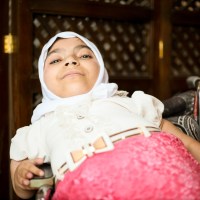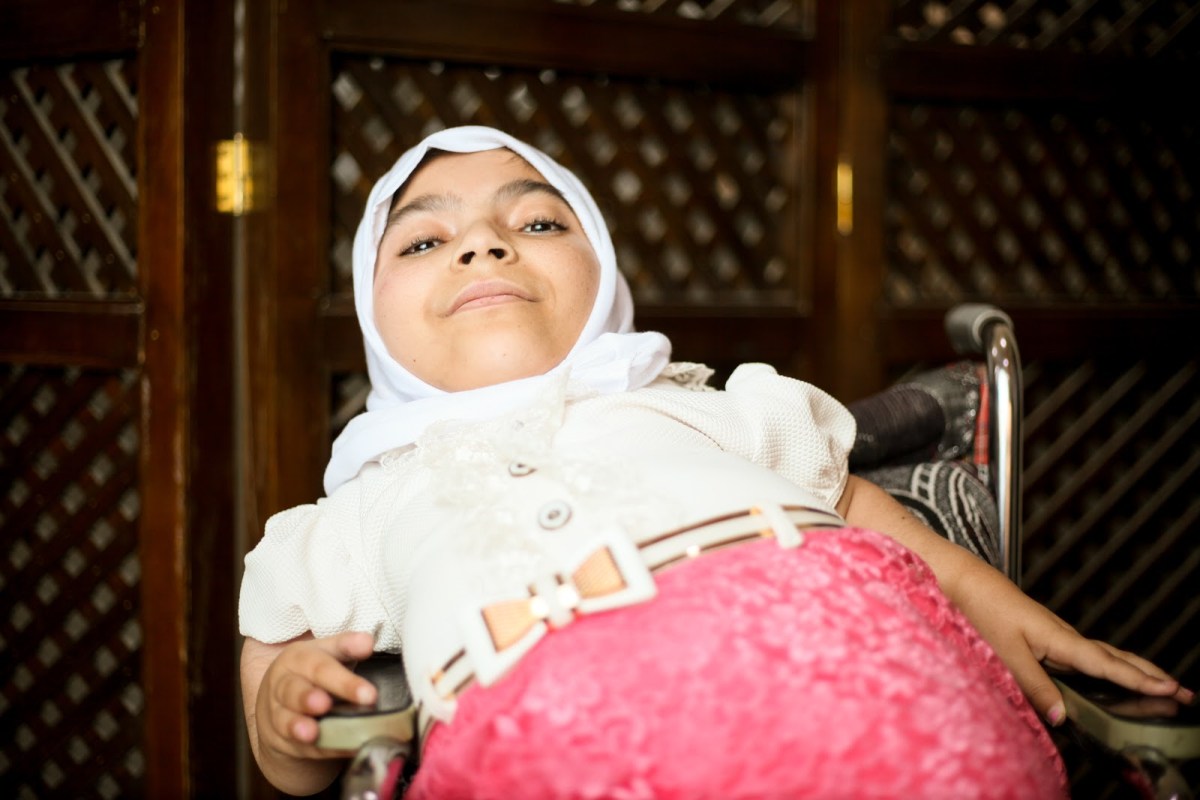“She doesn’t have any difficulties.”
The city of Mosul is most definitely a difficult place to live for people with physical and cognitive disabilities. Even before the war with ISIS, little of Iraq was built with universal access in mind.
And now, a year after much of the city was leveled by war?
Some neighborhoods are coming back to life. But huge parts of the city look much like they did this time a year ago—just after the battle ended. Areas that were heavily damaged by airstrikes can be treacherous or impossible to navigate. And in the rush to get back to normal life, to rebuild as quickly and inexpensively as possible, little thought is given to making cities more navigable for all.
But when I ask Aysha what it’s like to raise her daughter Asma in Mosul, she doesn’t think about any of that.
“She doesn’t have any difficulties,” Aysha says, as her face lights up. She adores her daughter, and it’s plain to see.

Asma is 21 years old. She is bright and quick to laugh. She finished 6th class (the last year of primary school in Iraq) in school before leaving formal education, but that wasn’t the end of her studies.
Asma’s mom took on the role of teacher for Asma and her seven siblings, helping all of her children with their schoolwork to ensure they succeeded. At home, she taught them the Quran, basic English, and anything else she thought would be helpful for their future.
Asma doesn’t get outside a lot—she spends most of her time in the house. Sometimes she goes with family to visit relatives. And sometimes they go for rides in the car through the city. From the back seat, Asma doesn’t have to worry about uneven sidewalks and broken pavement. 
Aysha raised her children, four of whom, including Asma, were born differently-abled, to be as self-reliant as possible. There are two pieces of equipment which help Asma with independence every day: a smartphone and a wheelchair.
When we chat with Asma, she always has her phone in her hands. For Asma, her phone isn’t just a communication device—it’s a freedom device.
Through the internet, the whole world is at her fingertips. She has no mobility issues online. She can chat and swap selfies with cousins, and learn whatever she is curious about online, as every young woman in her generation does.
A good wheelchair is a second essential ingredient in Asma’s life. A chair fit for her size helps keep Asma comfortable and (once her mom customizes the chair with padding) healthy by preventing pressure sores and infections. A chair which functions well gives Asma the freedom of movement at home—and what 21-year-old doesn’t want that?
You provided a new wheelchair for Asma. It’s red, and it’s a perfect match for her personality.
Life in Mosul is going to be difficult for a while. Rebuilding will take decades. Even their own house has needed replacement doors and windows three times—twice because of car bombs and once because of the war with ISIS.
But Aysha’s words about her daughter keep repeating in my mind: “She doesn’t have any difficulties.”
Because of her own spirit, her mom’s practical optimism, and help like yours in providing mobility and freedom—there is nothing Asma can’t overcome.
Stay tuned this week for more stories of how you’re making post-ISIS Mosul a little more accessible for our friends with disabilities.


